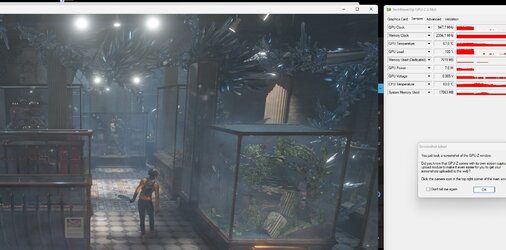I can be wrong, but I haven't found any other way if the BIOS is locked at a lower value. I would ask Lenovo about it, but I can only tell you that the same APU on Minisforum motherboards can go up to 16GB, so it's possible ... as long as the BIOS supports it.
The 780M is good enough to run most AAA titles at 1080p and some at mid/high details. It may still use 6-8GB, so I know why you wish to have more VRAM.
It could be worse, as business laptops with Intel CPUs have it limited below 1GB. Actually, I have to ask DELL about it on my new laptop as there is only 256MB

I don't think I will need more as I won't play on this laptop, and if I wish to, then I can connect eGPU via Thunderbolt. It's still weird to be limited so much.
Edit:
It seems I wasn't looking far enough. Here is one of the videos with a guide on how to force it in Windows. It's maybe for an Intel GPU, but it should work the same for AMD:
Here is the AMD version. It's almost the same.
